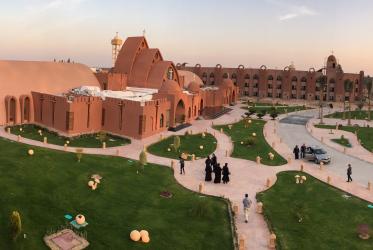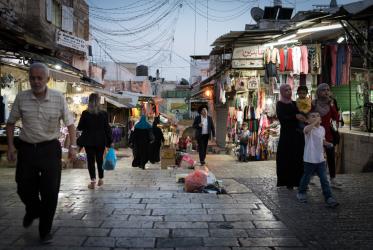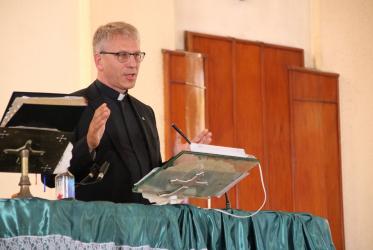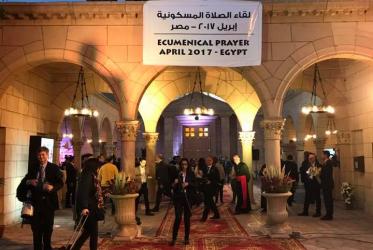Displaying 1 - 20 of 23
The cry of the Papuans in Indonesia
14 November 2019
A faith-based, holistic approach to HIV and AIDS-care
13 March 2019
WCC mourns passing of Metropolitan Anba Bishoy of Damietta
03 October 2018
An advocate for family values, called by God
26 March 2018
In Fiji, “time to go beyond the reef”
14 August 2017
A safe space for sinners to change and for pain to be shared
03 August 2017
“There are no strangers here” – Saint Irenaeus a key to unity?
19 December 2016
"I hit the ground running": Katalina Tahaafe-Williams
16 February 2016
Local and global work saves lives
22 October 2015
Indigenous faith leaders reflect on resilience and climate change
23 September 2014















